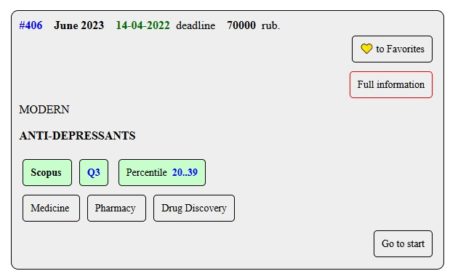Sonic diabetes treatment, med-eating bacteria, the lazy way to authorship, and more
07 Apr 2022
Posted by Andrew Kantor
When bacteria eat ACE inhibitors
ACE inhibitors don’t always work as well as you’d like against hypertension, and now microbiologists at ath University of Toledo might have figured out why. All together: “Oh, sheesh, gut bacteria again?”
Apparently the Coprococcus comes bacteria is the problem — or at least the biggest problem discovered so far. Simply put, C. comes produces enzymes that break down at at least one ACE inhibitor: quinapril.
Of course, different people have different gut biomes, so “the same drug may not be appropriate for everyone because each person has a unique gut microbial composition with a unique profile of enzymatic activities.”
Congrats to Wellstar!
Wellstar Health System received the Healthcare Information and Management Systems Society’s Stage 7 ranking — the highest available — in two categories for its use of data analytics and medical-records technology. Fewer than 10 percent of U.S. hospitals achieve Stage 7 status; Wellstar is the only health system in Georgia to nab it.
Covid comeback?
In general, Covid-19 cases in the U.S. are continuing to drop, although the drop is leveling off. (Cases in Georgia are actually up by 8 percent over the last two weeks.) Meanwhile, Europe is seeing a serious resurgence. So why is America not seeing the same bump?
It could be…
- … because in ‘pro-vaccine’ areas, well, people are vaccinated; in anti-vaccine areas, they’ve either been infected or they’re among the country’s 981,000 dead*.
- … because people are losing health insurance and can’t afford testing, or they’re doing testing at home and not reporting results.
- … because states are under-reporting positive results.
- … because the right butterfly flapped its wings at the right time — as University of Minnesota epidemiologist Michael Osterholm put it, “I don’t know, and I don’t think anybody really knows.”
Or maybe our surge is still coming down the pike.
* Money quote on the issue: “Most of Europe has been pretty Covid-averse, you know, whereas parts of the United States have been quite Covid-curious.” —Harvard epidemiologist Bill Hanage
Students and recent grads — you heard this, right?
“White House extends student loan repayment freeze through August”
What’s new?
New mRNA vaccines that don’t require the serious refrigeration that Moderna’s and Pfizer’s do. One from China’s Walvax Biotechnology is in phase 3 trials; another from French-Thai company BioNet-Asia is about to begin.
A new body part — specifically, “a brand-new type of cell hiding inside the delicate, branching passageways of human lungs.” Dubbed respiratory airway secretory (RAS) cells they’re kind of like stem-cells lite, “capable of repairing damaged alveoli cells and transforming into new ones.”
Everything is Covid
The Brits have officially added nine new signs of infection to the list of Covid-19 symptoms, to the point that just about everything is a Covid symptom. An exaggeration? Nope. On the new list are “feeling sick or being sick.”
Vibrating the diabetes away
Are you planning to keep treating diabetes with drugs and lifestyle choices? How quaint!
Coming soon, courtesy of a group of biomedical engineers: treating it with ultrasound. How? By stimulating the liver’s porta hepatis — an area that “communicates information on glucose and nutrient status to the brain.”
[S]hort targeted bursts of pFUS at this area of the liver successfully reversed the onset of hyperglycaemia. The treatment was found to be effective in three separate animal models of diabetes: mice, rats, and pigs.
So, does that mean people would need to carry an ultrasound, er, thingamajig with them 24/7? Nope. “[J]ust three minutes of focused ultrasound each day was enough to maintain normal blood glucose levels in the diabetic animals.”
ICYMI
There’s a new variant out there — Omicron XE. But not to worry. Apparently we’ve already been through Omicron XA to XD and no one bothered to mention it. This is just the first time they’ve told us not to worry….
Publish, perish … or pay for peddled placement?
Let’s say you want your name on a few more papers, but don’t actually want to do any work. Apparently, a Russian company will pay off the real authors of papers to add your name to the list — even as corresponding author, in some cases. A German sociologist has been tracking the site since 2019 for her own paper.
More than 100 of these identified papers were published in 68 journals run by established publishers, including Elsevier, Oxford University Press, Springer Nature, Taylor & Francis, Wolters Kluwer, and Wiley-Blackwell, although most of these were specialized publications.
If you’re thinking of spending a few hundred bucks or more, there are at least two problems. First, it’s bleeping unethical. Second, thanks to sanctions, it’s illegal to do business with the Russians anyway.

For 70,000 rubles (about $834), you can be an author of a paper on modern antidepressants — hurry, the deadline is April 14.


